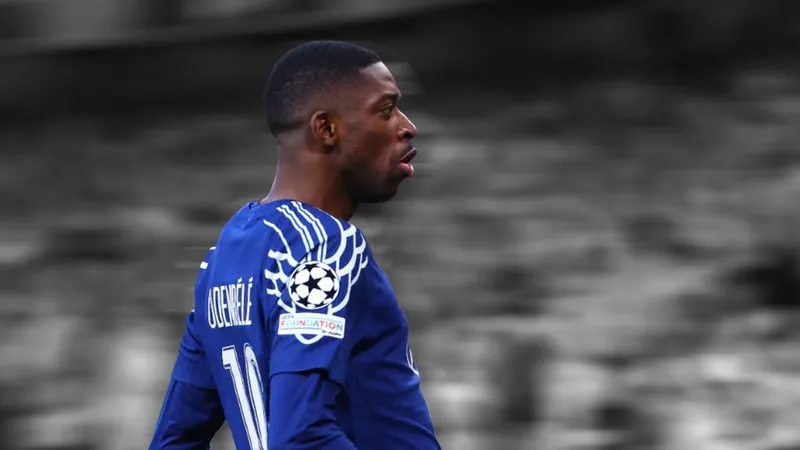LONDON — Arsenal’s dream of reaching the Champions League final isn’t dead yet, even after a bruising 2-1 loss to Paris Saint-Germain in the first leg of their semifinal at the Emirates Stadium on April 29. The Gunners, chasing their first-ever title in Europe’s biggest club competition, showed enough grit and tactical nous to keep hope flickering as they head to Paris for the return leg. With a season of resilience, a knack for defying odds, and a squad that’s proven it can hang with the continent’s elite, Arsenal’s road to the final remains open—if they can pull off a comeback.
The defeat at home stung. PSG’s clinical finishing, led by a Kylian Mbappé strike and a late header from Gonçalo Ramos, exposed Arsenal’s occasional defensive lapses. Yet the Gunners clawed back with a Martin Ødegaard goal in the 68th minute, a scrappy finish after a deflected shot that kept the tie within reach. That away goal, coupled with Arsenal’s dogged performance against a side stacked with star power, signals they’re not out of the fight. The aggregate score sits at 2-1, meaning a 1-0 win in Paris on May 7 would level the tie, with extra time or penalties to decide it. A taller order, sure, but Arsenal’s campaign has been built on overturning expectations.
This season, Arsenal have shown they can go toe-to-toe with Europe’s heavyweights. Their quarterfinal triumph over Real Madrid, sealed with a 3-0 first-leg rout at the Emirates on April 9, was a statement. Madrid, 14-time champions, couldn’t crack Arsenal’s high press or cope with Bukayo Saka’s relentless runs. The second leg, a tense 1-1 draw in Spain, proved Mikel Arteta’s side can hold firm under pressure. Earlier, Arsenal dispatched Porto in the round of 16, winning 4-2 on aggregate after a nervy penalty shootout. These aren’t flukes. Arsenal’s unbeaten run in their last nine Champions League matches before the PSG loss underlines a team that’s learned to grind out results.
Arteta’s tactical tweaks have been key. Against Madrid, he deployed a compact 4-4-2 out of possession, choking the midfield and forcing turnovers. Against PSG, he adjusted to a 4-2-3-1, with Ødegaard and Declan Rice anchoring the center to counter PSG’s rapid transitions. The strategy nearly worked—Arsenal dominated possession at 58% and outshot PSG 14 to 10. If not for a momentary lapse on Ramos’s header, the tie might look different. Arteta, speaking after the match on April 29, was blunt: “We’re still in this. One goal changes everything in Paris.” His confidence isn’t just talk. Arsenal’s ability to adapt, seen in their comeback from a 1-0 deficit against Porto, shows they can flip the script.
The squad’s depth is another edge. Despite injuries to key players like Gabriel Jesus earlier in the campaign, Arsenal have leaned on Leandro Trossard and Kai Havertz to deliver in big moments. Saka, with seven goals in the competition, remains a game-changer, his pace and trickery a nightmare for PSG’s left-back Nuno Mendes in the first leg. William Saliba, the 24-year-old center-back, has been a rock, neutralizing threats like Madrid’s Vinícius Jr. and limiting Mbappé’s space. If Arsenal can tighten up at the back and capitalize on their chances in Paris, they’ve got the tools to pull it off.
History offers a glimmer of precedent. In 2006, Arsenal reached their only Champions League final, beating Juventus and Villarreal before falling to Barcelona. That squad, led by Thierry Henry, was underdog through and through. This one, with its blend of youth and steel, feels cut from similar cloth. PSG, for all their talent, have their own demons—choking in Europe is practically a tradition. Their collapse against Barcelona in 2017’s 6-1 remontada is a reminder they’re not invincible.
The road to the final on May 31 in Munich isn’t easy. A win in Paris would likely pit Arsenal against either Barcelona or Inter Milan, both formidable but not unbeatable. Barcelona’s attacking flair has been blunted by injuries, while Inter’s defensive discipline hasn’t faced a press as ferocious as Arsenal’s. The Gunners’ path hinges on execution, not miracles.
Arsenal face PSG in the second leg on May 7 at the Parc des Princes. The final is set for May 31 at the Allianz Arena.

